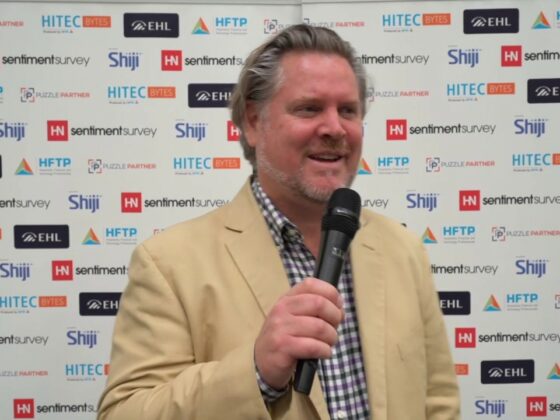
The hospitality industry is facing a hiring catastrophe. Last year, hospitality and leisure hit all-time high employee exit rates, with over 3 million people quitting their jobs. Competition is rife not only to attract but also to retain the top talent as well as effectively engage the different demographics within candidate pools.
To resolve the ongoing staffing crisis, hiring managers are employing technology to target candidates, ensure speedier communication management with them, and keep pace with their nuanced career preferences.
Yet reaching candidates is only half the battle: keeping them engaged throughout recruitment and beyond is another part of the puzzle. Let’s dive into which demographics could make or break the future of hospitality and how to maximize technology in your recruitment strategy.
Understand How Gen Z and Millennials Are Redefining Workplace Expectations
The median age across the hospitality industry falls under the Millennial or Gen Z generations, meaning they are actively shaping the hospitality hiring landscape. Their influence can’t be underestimated, and they hold a huge sway as the world’s largest demographic entering the workplace.
As the youngest generations, they’re also digital natives and younger job hunters can be found on platforms beyond the classics like LinkedIn. For instance, Gen Z candidates are more likely to branch out across social media platforms, including TikTok in the hopes of securing their next career opportunity.
These younger generations are bringing new values that are redefining how recruitment works in the industry. They prioritize flexibility, cultural compatibility, and corporate social responsibility.
The bottom line is that hotels and restaurants need to focus on these factors and make them shine in order to attract the top talent.
Use AI and Automation to Reshape Recruitment
Connecting companies with an infinite number of candidates is a double-edged sword. Although recruiters can scout from much wider talent pools, there’s a lot more data to manage, and making sure the right actions are taking place at the right touch points for every candidate is virtually impossible for hiring managers sifting through hundreds or even thousands of applications.
Emerging solutions, like Applicant Tracking Systems (ATS), are helping recruiters track applicants and make sure they’re not missing out on the best candidates. Specifically, these tools reduce slow response times—a killer for recruitment strategies, particularly among the digitally-native Millennials and Gen Z who expect instantaneous updates regarding their applications.
Instead, ATS helps hiring managers automate recruitment workflows to trigger responses in certain instances, such as when resumes pass screening tests for initial rounds. It sends messages notifying candidates of successfully progressing to the next stage.
While automation helps recruiters maintain speedy communication with candidates, generative AI ensures that it’s still personalized. Digitally savvy applicants are able to discern when a message is bot-generated. It’s important to carefully select and modify generated messages to ensure they meet your brand voice and sound human.
Achieving personalization means paying close attention to how messages are personalized, like greeting candidates by name and using conversational language to ask about their day. Channels of communication also make or break this, and it’s worthwhile to think about reaching out to younger applicants via text as opposed to just email for instance.
Find the Right Fit
It’s not just about keeping track of the number of applications and following up with them. AI has its place in strengthening recruitment strategies by helping managers understand which candidates are most likely to be the best fit for the listed role and their company.
Replacing employees is expensive and time-consuming, costing double an employee’s salary. In fact, hiring is a small portion of a hiring manager’s job. Significantly more energy is devoted to ensuring that the best candidate is being selected for a role, and that includes potential tenure.
AI solutions are playing a vital role in transforming recruitment processes by empowering recruiters to more objectively gauge which candidates are most likely to stay on at a company. For example, natural language processing in AI tools can be used to cross-evaluate resumes for relevant skill sets and experience so that recruiters can identify the top candidates that are likely to stay in the role and perform well.
Think Beyond Technology: Culture is Key
Candidates aren’t just looking at salaries when applying for a job. They’re also considering commuting, training and development opportunities, company values, and culture.
Culture is one of the first things that potential candidates will assess before deciding whether or not they’re going to apply for a role. Specifically, they’ll want to know about opportunities for growth and career empowerment.
There are unique opportunities to incentivize employees to build a warm and welcoming culture. Let’s take one of the industry’s biggest understaffing challenges, which 43% of hotels report as an ongoing issue: housekeeping. A hotel could create an incentive program for employees where they’re rewarded for helping train new recruits in tasks like housekeeping.
This helps hospitality companies nurture collaborative cultures towards learning and improvement, where each employee can help another and mutually benefit from an opportunity to expand their skill sets. These incentives actively reward expressions of values like teamwork and ambition.
Finally, consider partnering with educational institutions to attract talent. Hotel owners could offer internships and apprenticeships for hospitality students, giving employers direct access to new talent.
Understanding what makes candidates tick is at the heart of finessing hiring strategies that attract top talent while maximizing the likelihood of longer-term tenure. While swift communication is vital, technology can’t be blindly used without gauging candidates’ nuanced preferences, especially across generations. Optimizing hiring strategies with the right tools, channels, messaging, timing, and candidates is key to longer-lasting tenure.
ABOUT THE AUTHOR
Jon Puckett, the CEO of Cadient, brings over two decades of management and SaaS experience to the forefront of the talent acquisition industry. With a proven track record of fostering strong client and partner relationships, increasing profitability, and enhancing operational efficiencies, Puckett has demonstrated an outstanding ability to visualize, articulate, and solve complex problems. His leadership at Cadient is marked by the successful development of core initiatives aimed at focusing, managing, and driving organizational change and performance improvements. Prior to his current role, Puckett served as the Interim Chief Operations Officer at Cadient, where he played a pivotal role in customer relationship management post-sales, including implementations, education services, professional services, client success, and technical support. His tenure at Cadient began in January 2024, where he has since been instrumental in setting the company’s strategic direction, sales strategy, and annual targets, underscoring his strong empathy for customers and passion for delivering positive outcomes, revenue, and growth.









